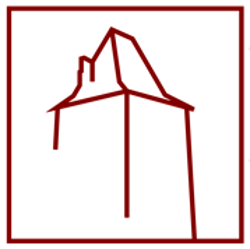Union of Poles in Germany in the Koźle Region
The beginnings of the Polish national movement in the Koźle Region can be traced back to the period of the Springtime of the Peoples (1848). In consequence of the riots, which were sweeping through the European countries at that time, the democratization of life took place in Prussia: a parliament – Reichstag – was convened, and citizens were granted voting rights. It was due to the first election campaign that the people who had not thought until such issues until then began to ponder their identity and political views. During that period, Józef Szafranek, a priest born in Gościęcin near Pawłowiczki, greatly contributed to the rise of the Polish national consciousness. The Polish population of Koźle County elected him as its deputy in Reichstag. On 24 August 1848, he submitted a petition demanding the right to use the Polish language, on which he collected half a million signatures of the inhabitants of Silesia.
The end of the 19th century is the period when in Silesia, something that we today call a civic society began to flourish – thousands of groups, cooperatives, and associations, dealing with the organization of various areas of life, were created. Shortly before World War I, over 2000 Polish associations, groups, and organizations were registered in the governmental district of Opole.
After the division of Silesia on 15 May 1922, under the auspices of the Allies, Poland and Germany concluded a convention in Geneva that ensured the freedom of activities of the national minorities in both countries. On 27 August 1922, the Union of Poles in Germany was created. Its County Secretary’s Office was also established in Koźle. Its leaders were, among others, Józef Planetorz of Cisek and Juliusz Jacek of Dziergowice. The objective of the union was to support the Polish-speaking population in the efforts to preserve the Polish national identity and knowledge of the Polish language. As German authorities inconvenienced the sympathizers of the union in various ways, joining the organization was perceived as an act of bravery. Nevertheless, the members managed to open local branches in six villages of Koźle County: Cisek, Bierawa, Dziergowice, Łany, Roszowicki Las, and Stare Koźle. Many other, smaller, informal education and cultural associations, youth and economic groups, as well as Polish libraries (functioning in Koźle, Cisek, and Dziergowice) were created under the guardianship of the Union of Poles in Germany. Thanks to the Geneva Convention, it was also possible to establish Polish-speaking minority schools. In spite of the resistance from the authorities, such schools were successfully opened in Cisek and Roszowicki Las. After the expiry of the convention, which took place in 1937, the Polish activity within the territory of Silesia became more difficult.







